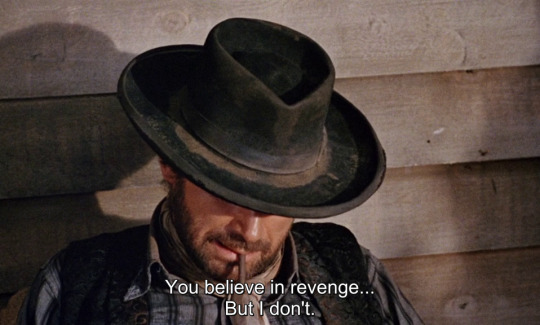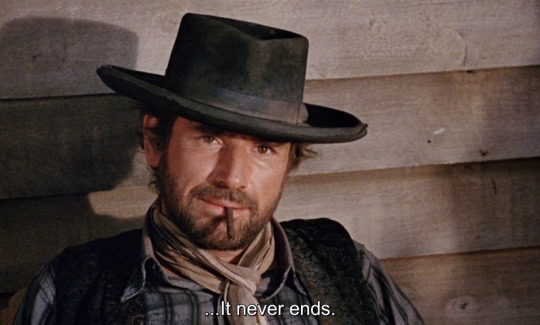#Hossein
Explore tagged Tumblr posts
Text

Marina Vlady et Robert Hossein dans "Toi le Venin" de Robert Hossein, 1958.
3 notes
·
View notes
Text


Through the Olive Trees (Abbas Kiarostami, 1994)
#Through the Olive Trees#Abbas Kiarostami#Kiarostami#1994#Zire darakhatan zeyton#quote#happiness#long shot#iran#Hossein Rezai#Tahereh Ladanian#colour#blue#flower#flowers
693 notes
·
View notes
Text













Zen Villa, Japan,
Mohammad Hossein Rabbani Zade
#art#design#architecture#luxury house#luxury home#retreat#zen#landscaping#brutalism#luxurylifestyle#concept#render#japan#mohammad hossein rabbani zade
2K notes
·
View notes
Text

Hossein Borojeni
491 notes
·
View notes
Text

Stalin killing Hitler by Hossein Taherzadeh Behzad (1945)
321 notes
·
View notes
Text

Hossein Behzad (Iranian, 1894-1968), Dancer. Gouache and ink on black paper, 62 x 49 cm.
114 notes
·
View notes
Text

Hossein Edalatkhan, Iranian Artist
457 notes
·
View notes
Text
Les Misérables 1980
I have already talked about Les Misérables , but I wanted to expand on the subject a little more, by detailing the three French versions as best I can !!

This strange idea of adapting Victor Hugo's novel into a musical came from Alain Boublil after he attended a performance of the musical Oliver! play in London ( he reports having perceived in his mind a resemblance between Oliver Twist and Gavroche )
Carried away by what he considers (rightly) as a flash of genius, he will work in collaboration with Claude-Michel Schönberg and Jean-Marc Natel to compose the music and lyrics for the future album

Fortunately the album will experience its small success with the public, this victory will make the creators grow wings who will launch head first into the torrent of stage creation !
This heavy task will be entrusted to Robert Hossein , an French director, actor, screenwriter, dialogue writer , who will use his fame to the best of his ability to promote the show (which he would be criticized for and mocked , trample his enthusiasm)

The very first production of Les Misérables was created and then performed in Paris at the Palais des Sports in September 1980
Scheduled for a minimum of eight weeks, it will be played for sixteen weeks, with the Palais des sports no longer available beyond that With 107 performances, it attracted around 500,000 spectators
( I don't know how it works in the United Kingdom and the United States at the same time but in France it will be necessary to reach the end of the 90s for the musicals to travel throughout the country + outside of France )

DISTRIBUTION :
Maurice Barrier : Jean Valjean
Jean Vallée : Javert
Rose Laurens : Fantine
Yvan Dautin : Mr Thénardier
Marie-France Roussel : Mrs Thénardier
Maryse Cédolin / Sylvie Camacho / Priscilla Patron : little Cosette
( alternately the little girls also played little Eponine and Azelma )
Fabienne Guyon : Cosette
Marianne Mille : Éponine
Cyrille Dupont / Fabrice Ploquin / Florence Davis : Gavroche
Gilles Buhlmann : Marius
Christian Ratellin : Enjolras
René-Louis Baron : Combeferre
Dominique Tirmont : Mr Gillenormand
Anne Forrez : Mrs Gillenormand
Claude Reva : Storyteller


There remain too few archives of the original shows, unfortunately at the time filming in theaters and performance halls was not a common reflex ...
I did my best to find as much as possible :
youtube
youtube
Unreleased Javert song, not kept in the album and show ⤵️
youtube
youtube
The Full Live Recording of the Show :
youtube



ANECDOTES :
If I'm not mistaken, this is the only version that uses the character of Azelma , the sister of Eponine and Gavroche

...
Cyrille Dupont, one of the three kids who played Gavroche, was known vocally for singing the theme song for Nobody's Boy : Remi
youtube
...
Florence Davis one of three actors playing Gavroche was a girl ?!
Strange artistic choice ? Or last-rescue liner ??
youtube
...
Robert Hossein was so marked by this show that two years later, he made a film adaptation of the original novel !!

Starring the legend Lino Ventura as Jean Valjean and the very young Emmanuel Curtil as Gavroche (this little boy is today an ICONIC voice actor in France : Jim Carrey, Mike Myers, Matthew Perry and many many others characters )

youtube
The Full Movie :
youtube
I'm working on the 2024 version
However you can find the 1991 version and other French musicals on my Masterlist :
#the miz#les miserables#les mis#jean valjean#fantine les mis#cosette#musical theater#victor hugo#gavroche#enjolras#marius pontmercy#inspector javert#robert hossein#lino ventura#emmanuel curtil#les miz#eponine#Los miserables#孤星淚#레 미제라블#뮤지컬#Отверженные#мюзикл#i dreamed a dream#one day more#do you hear the people sing#jim carrey#voltaire#rousseau#french history
70 notes
·
View notes
Text
I don't think people understand how intrinsically Jewish the Les Misérables musical is. The writers of the original French musical were Claude-Michel Schönberg (Hungarian Jew), Alain Boublil (Sephardic Jew), and directed by Robert Hossein (Moldovian Jew). Schöneberg also composed the music. It was adapted into English by Herbert Kretzmer (Lithuanian Jew).
The lyrics include many references to Jewish beliefs and values. Schöneberg said in an interview, "When I’m writing a show there is always a part that is typically Jewish."
However, the one that sticks out to me especially is a line from the Epilogue:
"They will live again in freedom,
In the garden of the Lord;
They will walk behind the ploughshare,
They will put away the sword."
The origin of the phrase - specifically, the bit about 'ploughshares' and 'swords' - can be traced back to a nevuah (prophecy) by Yeshayahu (Isaiah), a Jewish navi (prophet) from the sefer Yeshayahu (Book of Isaiah). (Sorry, yes, I insist on the Hebrew words first.)
"The Torah will go forth from Tzion (Zion) and the word of Hashem from Yerushalayim (Jerusalem)... They will then cut their swords into ploughshares, and their spears into pruning knives. No nation will lift a sword against the other, and they will no longer learn warfare."
This is a quote about the 'end of days', and the idea of a peaceful paradise free from war was emulated in the song to convey a similar paradise for our barricade boys, the casualties of the June Rebellion. This is only one of the many examples of Jewish themes and references in the Les Misérables musical!
#les mis#les miserables#judaism#isaiah#yeshayahu#navi#claude michel schöneberg#les mis musical#les miserables musical#alain boublil#herbert kretzmer#robert hossein
371 notes
·
View notes
Text


-Where is My Friend’s House? (Abbas Kiarostami, 1987) -Through the Olive Trees (Abbas Kiarostami, 1994)
#Where is My Friend’s House?#Abbas Kiarostami#Where is My Friend’s House#Kiarostami#Through the Olive Trees#Zire darakhatan zeyton#1987#1994#long shot#nature#comparison#Hossein Rezai#Khane-ye Doust Kodjast#Khane ye Doust Kodjast#Babek Ahmad Poor
497 notes
·
View notes
Text


"Bedenin toprağa girmesi ölüme delil değildir. Ölüm unutulmaktır."
130 notes
·
View notes
Text

A woman holds an open Quran on the bride's chest, during a wedding ritual in Bileh Sowar, Ardebil, Iran, on May 9, 2007. Traditional weddings in rural Iran are deeply rooted in cultural heritage, marked by symbolic rituals that highlight prosperity, honor, and transition.
Hossein Fatemi
20 notes
·
View notes
Text
Seninle hiç yan yana gelmeden gezdik o sokakları. Aynı kaldırımlarda yürüdük, belki saniyelerle kaçırdık birbirimizi. Aynı sokak lambasının altında durduk, belki aynı şarkıyı dinliyorduk o an. Aynı vitrine baktık, aynı kahveciden gelen kokuyu içimize çektik. Aynı yağmurun altında huzur bulduk, aynı karın soğuğunda üşüdük. Aynı çöpe attık çöplerimizi, belki aynı kedi korkuttu bizi. Aynı durağa yürüdük, belki yan yana oturduk, ama göz göze hiç gelmedik. Aynı kitabı okuduk, aynı cümlenin altını çizdik, aynı sayfayı kıvırdık. Belki aynı anda iç çektik, aynı satırlarda kendimizi bulduk. Aynı yatakta uyuduk, ama farklı zamanlarda... Aynı yastığa baş koyduk, ama kokusu hep eksikti birimiz için.
Sen aklımdaydın...
Ben aklındaydım...
Ve belki de sadece bu yüzden, hiç yan yana gelmedik.
#aynı şehirde#farklı yalnızlıklar#sen aklımdaydın#ben aklındaydım#olafkardanadam#biradamgirdisehrekosarak#باران#baran#yağmur#majid majidi#hossein abedini#zahra bahrami#mohammad amir naji#abbas rahimi#gholam ali bakhshi
22 notes
·
View notes
Text


Robert Hossein - Cemetery Without Crosses (1969)
24 notes
·
View notes

